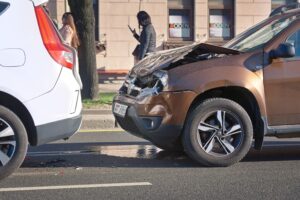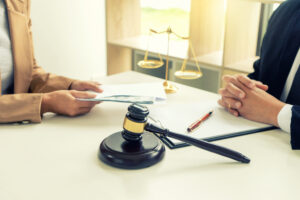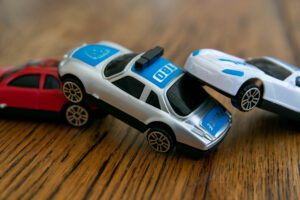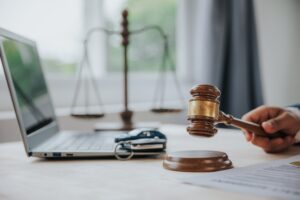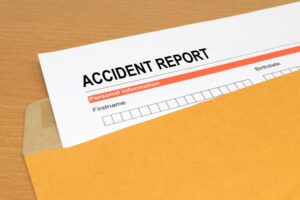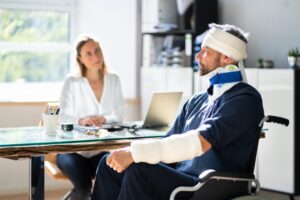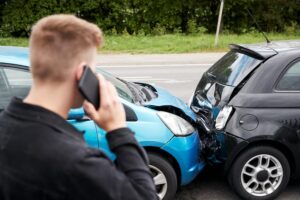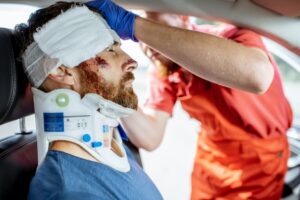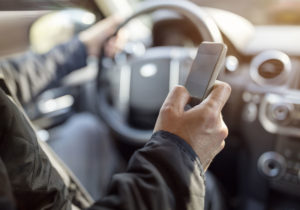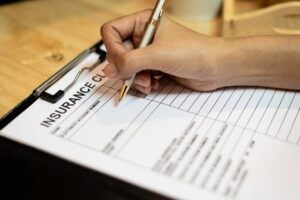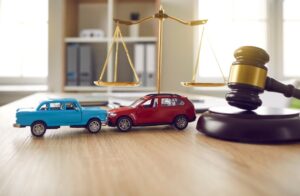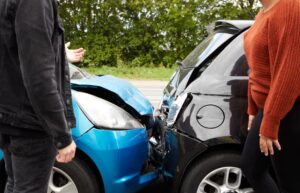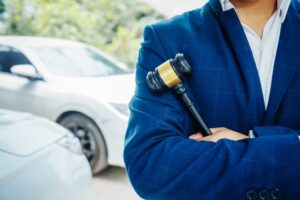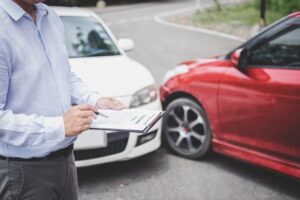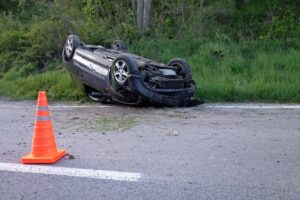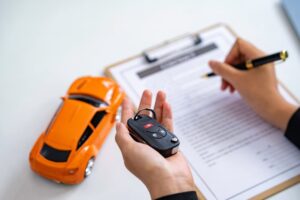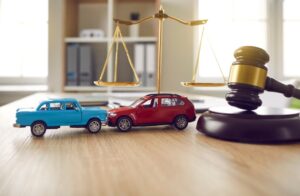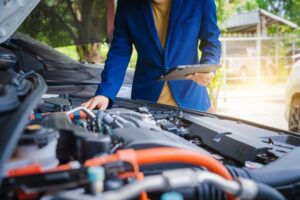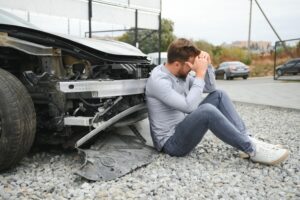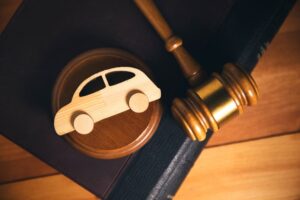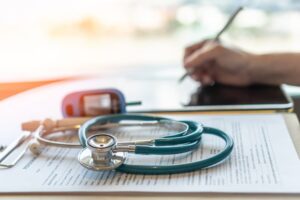Steps to Take After a Drunk Driver Hits Your Vehicle in Seattle
Drunk driving accidents in Seattle continue to be a serious issue, with devastating consequences for victims and their families. According to statistics from the Washington State Traffic Safety Commission, drunk driving was a factor in 25 percent of all traffic deaths in the state in recent years. This alarming statistic highlights the need for immediate action to address this problem.
If you have been involved in an accident where a drunk driver has collided with your vehicle in Seattle, it can be an incredibly overwhelming and traumatic situation. Dealing with the aftermath of such an incident is not only emotionally challenging but also physically and financially burdensome. It is important to remember that you are not alone in this – there are steps you can take to protect your rights and seek the justice you deserve. Contacting a Seattle car accident attorney is a critical first step in navigating the legal process and ensuring you receive proper compensation for your damages. These professionals have the knowledge and experience to guide you through the necessary steps and can help you recover physically and financially from this traumatic event.
How Drunk Driving Affects Victims

When a drunk driver collides with your vehicle, the impact can result in a wide range of injuries, varying from whiplash to traumatic brain injuries. These physical injuries often require extensive medical treatment and rehabilitation, which can be both physically and emotionally exhausting. Additionally, victims may suffer from emotional trauma, post-traumatic stress disorder (PTSD), and fear of driving after the accident.
In addition to the physical and emotional toll, drunk driving accidents also carry significant financial burdens. Victims may face medical bills, lost earnings due to inability to work, and the cost of repairing or replacing their damaged vehicle. These sudden and unexpected expenses can cause severe financial strain on individuals and their families.
Common Injuries in Drunk Driving Accidents
Drunk driving accidents often result in catastrophic injuries due to reckless driving behaviors such as excessive speeding, running red lights, or failing to brake in time. Victims of DUI crashes typically suffer more severe injuries compared to other car accidents because impaired drivers have slower reaction times and diminished judgment, making collisions more forceful and unpredictable.
Common injuries in drunk driving accidents include:
- Traumatic Brain Injuries (TBI) – Concussions, skull fractures, and permanent cognitive impairment.
- Spinal Cord Injuries – Partial or complete paralysis, nerve damage, and chronic pain.
- Broken Bones and Fractures – Common in high-impact crashes, especially in head-on collisions.
- Internal Injuries – Damage to organs, internal bleeding, and punctured lungs.
- Whiplash and Soft Tissue Injuries – Neck and back injuries leading to long-term mobility issues.
- Burns and Disfigurement – If the vehicle catches fire or the victim is exposed to toxic chemicals.
Seeking full and fair compensation is necessary for covering medical bills, lost earnings, and pain and suffering after a drunk driving accident.
Legal Consequences for the Drunk Driver
Drunk drivers involved in accidents not only face potential criminal charges such as DUI, reckless driving, and vehicular assault but also civil liability for the injuries, damages, and pain and suffering they have caused. These legal consequences aim to hold drunk drivers accountable for their actions and provide a means for victims to seek compensation for their losses.
Medical and Financial Steps to Take After a Drunk Driving Accident
After a drunk driving accident, take immediate action to protect your well-being and future legal rights. Here are some critical steps to consider:
Seek Immediate and Ongoing Medical Treatment
One of the priorities after a drunk driving accident is to seek medical attention. A thorough medical evaluation is essential even if you do not feel any immediate pain or injuries. Some injuries, such as concussions or internal bleeding, may not manifest symptoms until later. By seeking medical treatment, you ensure that any underlying injuries are diagnosed and treated promptly.
It is also essential to follow up with doctors and specialists as recommended. This ongoing medical care is necessary for assessing the full extent of your injuries and developing an appropriate treatment plan. It also serves as documented evidence of your injuries and the associated costs.
Document All Accident-Related Expenses
Keeping track of all accident-related expenses is essential for building a strong compensation case. This includes hospital bills, therapy costs, prescription medications, and necessary medical devices. In addition, tracking lost earnings and future loss of income due to your injuries is critical for accurately calculating your financial losses.
Don’t forget to document property damage costs as well, whether it is for repairing your vehicle or replacing it altogether. Keep all documentation, receipts, and invoices related to these expenses as evidence that can support your claim for compensation.
Contact a Seattle Car Accident Attorney
Contact a Seattle car accident lawyer to protect your rights and seek the compensation you deserve after a drunk driving accident in Seattle. The aftermath of such an incident can be overwhelming, and having a well-versed Seattle car accident attorney by your side can make all the difference in ensuring a fair outcome. Don’t delay – contact a car accident lawyer in Seattle today to get the help and support you need. This is one of the most important steps you can take after being hit by a drunk driver.
Understanding Liability in a Drunk Driving Accident
In Washington State, the laws surrounding DUI accidents can significantly impact civil claims. The burden of proof in drunk driving accident cases is often lower than in other types of accidents, making it somewhat easier to establish negligence on the part of the drunk driver. Additionally, evidence such as breathalyzer results, police reports, and witness statements can strengthen your claim and help establish liability.
Filing a Claim Against the Drunk Driver’s Insurance
After a drunk driving accident, you should file a personal injury claim with the at-fault driver’s insurance company. Provide them with all the necessary documentation, including medical records, accident reports, and evidence of damages. You will want to work with an experienced Seattle car accident attorney during this process to ensure that your claim is handled correctly and that you receive the maximum settlement possible.
It is worth noting that DUI-related accidents often result in higher insurance settlements due to the severity of the damages involved. However, there may be instances where the drunk driver’s insurance company denies liability. Having a Seattle car accident attorney on your side will help make your claim easier and maximize your compensation.
Pursuing Compensation Beyond Insurance Limits
Sometimes, the drunk driver may be uninsured or underinsured, making it difficult to obtain full compensation through their insurance. In such situations, you may need to explore other avenues for compensation. Washington State’s dram shop laws, for example, hold bars or restaurants accountable for overserving alcohol to visibly intoxicated individuals who later cause accidents. These laws may provide an additional source of compensation.
Victim compensation funds or other available resources can also help bridge the gap in cases where the responsible party is unable to provide sufficient compensation for your damages. A knowledgeable car accident lawyer can guide you through these options and help you pursue the compensation you deserve.
Dealing with Insurance Companies After a Drunk Driving Accident
Dealing with insurance companies after a drunk driving accident can be challenging. Insurance adjusters may employ tactics to reduce your claim or downplay the severity of your injuries. It is important to protect yourself and your rights by being aware of their tactics and taking appropriate action, such as hiring a skilled Seattle car accident lawyer.
Common Insurance Company Tactics to Reduce Your Claim
Insurance companies often try to settle claims quickly and for the lowest possible amount. They may offer a quick settlement before the full extent of your medical expenses and damages are known. Be cautious of accepting such offers without fully understanding your rights and the actual value of your claim.
Additionally, insurance adjusters may attempt to minimize the severity of your injuries or claim that they were pre-existing. They may pressure you into giving recorded statements that can be used against you later in the claims process. Be aware of these tactics and consult with a Seattle car accident attorney before providing any recorded statements.
How to Protect Yourself from Insurance Adjusters
To protect yourself from insurance adjusters, never accept an offer without fully understanding your damages and the extent of your injuries. Get all offers, agreements, and settlements in writing, ensuring everything is documented and legally binding. Always consult an attorney before accepting any settlement offers to ensure you are not being taken advantage of.
If you believe the insurance company is undervaluing your claim or acting in bad faith, you may need to reject their settlement offer and pursue legal action. An attorney can help you face the legal process and negotiate a fair settlement or, if necessary, take your case to court.
Your Right to Seek Compensation for Damages
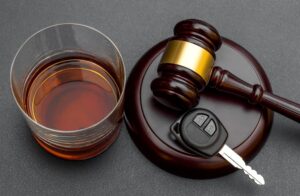
In a personal injury case resulting from a drunk driving accident, you may be entitled to compensation for various types of damages. These include economic damages such as medical bills, lost earnings, and property damage. Non-economic damages, such as pain and suffering, emotional distress, and post-traumatic stress disorder (PTSD), can also be included in your claim. In extreme cases, Washington law allows for punitive damages, which aim to punish drunk drivers for their behavior and provide additional compensation.
Time Limits for Filing a Claim in Washington
Be aware of the statute of limitations when filing a claim for a drunk driving accident in Washington. The statute of limitations sets the timeframe within which a lawsuit must be filed. In Washington, the statute of limitations for personal injury claims is typically three years from the accident date. Missing this deadline can result in the forfeiture of your right to seek compensation through legal means.
The Criminal Process Against the Drunk Driver
Drunk drivers involved in accidents may face criminal charges such as DUI, which can result in penalties such as fines, license suspension, and even imprisonment. Understanding the criminal process and the potential consequences the drunk driver may face can provide a sense of justice for victims.
Criminal cases differ from civil claims for compensation. The outcome of a criminal case does not automatically guarantee compensation for the victim. Pursuing a civil claim is a separate legal process that focuses on obtaining financial compensation for damages. You can pursue a civil claim while a criminal claim is pending.
Holding Bars and Establishments Accountable for Overserving
Washington’s dram shop liability laws hold bars and establishments accountable for serving alcohol to visibly intoxicated individuals who later cause accidents. If you believe that the drunk driver was overserved at a bar or restaurant prior to the accident, you can sue the establishment for their role in contributing to the accident.
This avenue of legal action can provide an additional source of compensation for victims and hold establishments accountable for serving alcohol irresponsibly.
Take the Right Steps After a Drunk Driving Accident
Being involved in a drunk driving accident can be a traumatic and life-altering event. You may be left with serious injuries that are far reaching and your medical bills are mounting. Understanding your rights and taking the proper steps to protect yourself physically and financially is essential. By seeking the help of a seasoned car accident attorney, you can face the complex legal process and ensure that you receive the compensation you deserve.
Remember to continue all necessary medical treatments, preserve evidence, and be aware of common insurance company tactics. By understanding your legal rights and taking proactive steps, you can maximize your compensation and seek justice for the damages you have suffered.
If you have been involved in a drunk driving accident in Seattle, do not hesitate to contact an attorney near you. They can provide the guidance and support you need to navigate the legal process and seek the justice you deserve. Take the first step towards recovery and contact a Seattle personal injury attorney today.


 Many assume parking lot accidents are minor since vehicles typically travel at low speeds in these areas. However, the reality is quite different—parking lot collisions can cause serious injuries, especially when
Many assume parking lot accidents are minor since vehicles typically travel at low speeds in these areas. However, the reality is quite different—parking lot collisions can cause serious injuries, especially when 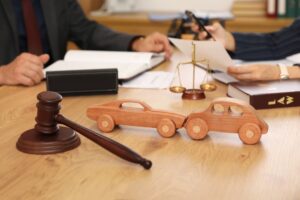 Handling a parking lot accident case can become complex, particularly when multiple parties or entities, such as businesses or government bodies, are involved. An
Handling a parking lot accident case can become complex, particularly when multiple parties or entities, such as businesses or government bodies, are involved. An 
